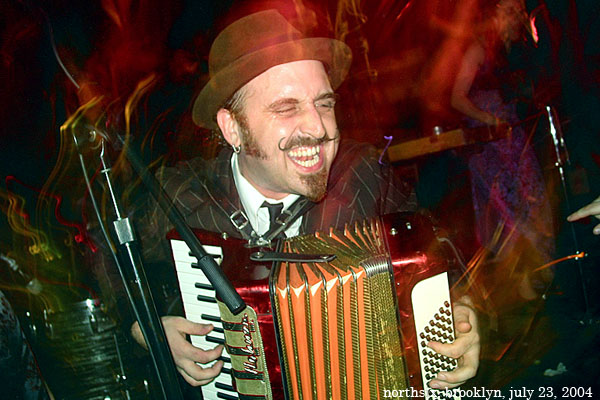First of all, I miss Franz. Levon said it best, "The bigger the band, the better is sounds to my ear." Franz was essentially the bigger band rolled into one package of romp, velvet pants and mustache wax. He left the band shortly into the recording of Heaven Is Whenever, saying:
"They have their one big idea-- making literate, wordy lyrics over big anthemic rock-- and the last two records were about as good as I felt like we could do with that."

The problem with geniuses is that they have trouble sitting still (one of the many obvious indicators and I am not, nor will ever be one). This kind of creative itch is what side projects were made for. But for a band on the level of The Hold Steady, they have to tour constantly to make the numbers work, which doesn't lend a lot of time to Vaudevillian side bands with tap-dance interludes. Franz clearly appreciates the value of the big idea of Hold Steady, but I think he overestimates the band's accomplishment and underestimates the depth of that one big idea. If Franz had been George Washington Carver, he would've boiled a peanut, decided it was good and called it day. Mmm. Boiled peanuts.
It's hard to overstate what a multi-instrumentalist can do for a sound-- especially in a band with the religious themes of The Hold Steady. If you're going to bring the sermon, you better damn sure bring the organ. But it was more than that. In a world of drums and guitars, it's amazing what an extra sound can do for creating an instant mood within a song. The harmonica for the country, mournful or stomping. A mandolin is a sweetness and a sharpness. Spoons for a goofy, low-rent gait second only to the cowbell. Then, there's the chronically under-utilized accordian. Unfairly banished to polka sideshows in ethnic beerhalls, it's making a slow comeback into coolness. Franz owns three. And you certainly can't discount the value of a good, weird, falsetto high-harmony in the background vocals.
This is not to say that The Hold Steady doesn't or can't exist without Franz, but they do have to fill the gaps. That's maybe the most interesting thing about this album. By leaving because of lack of room to grow, Franz may actually force the band to noticeably evolve, but evolve within the scope of that one "big idea."
"There was that whole weird thing with the horses. I think they know exactly what happened. I don't think it takes any explaining." - "The Weekenders"
Enough about what's missing, let's talk about what's still there. Craig Finn can still turn a phrase, tell a story, give a sermon, bring a simple truth and make absolutley no sense whatsoever. The songs are absolutely there. What Finn does better than anyone else is being constantly self-referential without being reptitive or inaccessible. Each song stands on it's own, but also fits into a larger continuing narrative. The band's past albums aren't prequisities in the way Alegra is to Calculus, but compliments. It adds depth and rewards your curiosity, and it's what makes a thing stand up over time. You can enjoy it in a vaccum, but the more you dig into the context and see it as part of a bigger universe, the more interesting it becomes.
You don't have to have listened to Chips Ahoy! to enjoy The Weekenders. It's a wink to the existing fanbase. "Hey, we know you. Thanks for coming back." And for new fans, it's a future moment of recognition. After they've been through Heaven Is Whenever a few times, they go back and listen to Boys and Girls In America and make the connection. Now, they're on the inside of a joke that was pretty good even from the outside. There are a hundred of those moments throughout the band's catalogue.
"Gonna make like a pre-emptive strike, hit the 5:30 mass every Saturday night." - "Our Whole Lives"
It's the rock show with driving hooks and story songs straight out of Warren Zevon's playbook. Hurricane J is the girl you can't save without changing everything you love about her. We Can Get Together about people who only communicate indirectly through pop culture and music references (sounds familiar). And then the celebrations and consequences of the cycle of self-destruction that are the core of any Hold Steady album so far. Increasingly, the voice is of an older brother trying to give a lesson of experience-- though he slips from the message of warning to remember the good times on a dark road in a way that you know even he hasn't quite decided if it was worth it or not.
Even without Franz, it's still the Steady. It's still among the best rock out there, and nobody else is doing quite the same thing.




